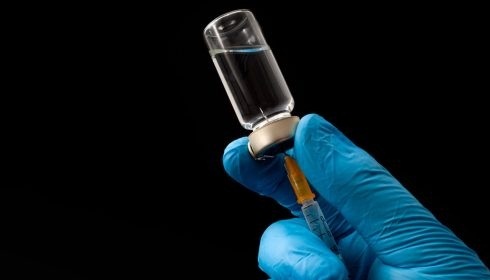
Fast-acting oral vaccines for Covid are coming soon: Japanese Researchers
According to a new publication published by Oxford University Press in Biology Methods and Protocols, researchers from the Biomedical Institute, NPO Primate Agora studying SARS-CoV-2 may have created new methods to give vaccinations orally, which would be both easier to administer and more successful at combating infections.
The simplest method for neutralising viruses is to neutralise them before they reach human cells when they are just on the surface of epithelial cells that line the lungs, nose, and mouth and produce mucus. Immunoglobulin antibodies work in mucus and can prevent viral multiplication.
However, particular immunoglobulins or antibodies for a given virus must first be produced by vaccination. Vaccination that quickly creates immunoglobulin A antibodies would help prevent illness.
As the coronavirus, like influenza, attacks bronchial cells, researchers believe it is critical to induce virus antigen-specific immunoglobulin A secretion in the mucosa rather than the blood.
According to them, vaccines delivered via other methods, such as nasal or oral, have recently been created by scientists and are more efficient than traditional subcutaneous shots at eliciting immunoglobulin A.
However, in the case of nasal vaccines, doctors have discovered that they have negative effects on the central nervous system or the lungs, such as headaches and fever.
Read More:
| - India launches world’s first intranasal COVID19 vaccine |
Looking for a novel vaccination administration route against SARS-CoV-2 that can trigger the development of immunoglobulin A in monkeys, the researchers delivered the vaccine to the monkeys sublingually and found that the test animals produced the required antibodies against the disease with no discernible side effects.
This means that, with additional research, clinics may soon be able to offer oral coronavirus vaccines, which would be more popular and effective against the disease, the researchers noted.
Pointing out that the efficacy of the sublingual vaccine was examined using Cynomolgus macaques, the researchers said that they divided nine monkeys into three groups of three animals: control [just 400 mg poly(I: C) per head], low dose [30 mg RBD and 400 mg poly(I: C) per head], and high dose [150 mg RBD and 400 mg poly(I: C) per head], respectively.
Researchers utilised N-acetylcysteine, a moderate reducing agent that lowers mucous barrier loss, to improve vaccine distribution to mucosal immune cells.
However, noting that the study is yet to examine the exact safety and efficacy using genomic markers described in previous papers in mice, the researchers said that further studies on these points are in progress using the preclinical non-human primate model.